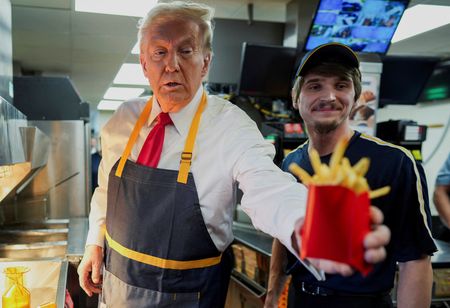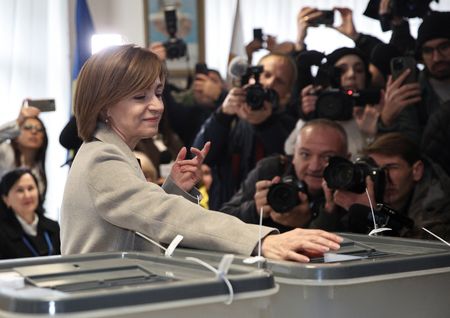MOSCOW (Reuters) – Moldova’s election was not free and the results showed a “hard-to-explain” increase of votes in favour of President Maia Sandu and the European Union, Kremlin spokesman Dmitry Peskov said Monday.
“What we see is a mechanically hard-to-explain rate of increase in votes in favour of Sandu and in favour of those referendum participants who favoured an EU orientation”, Peskov said.
A knife-edge majority of 50.17% voted “yes” in Moldova’s pivotal referendum on joining the European Union, nearly final results showed on Monday, after Sandu said Sunday’s twin votes had been marred by “unprecedented” outside interference.
Peskov described Moldova’s election campaign as ‘unfree’, complaining that the opposition had been denied the opportunity to campaign and had been subjected to repression by the authorities.
“They were persecuted, they were thrown into prisons, they were interrogated, they were not allowed into the country, the media were closed, Internet resources were blocked and so on,” Peskov said.
In the early hours of Monday, Sandu addressed Moldovan citizens, saying there was “clear evidence” that criminal groups working together with “foreign forces hostile to our national interests” had sought to buy off 300,000 votes.
“If she is saying that she did not receive votes because of certain criminal groups, she must present evidence,” Peskov said.
“And it would be nice for Mrs Sandu to explain such a large number of voices which dissent from her line. Are these also criminal gangs? Or does she mean that Moldovan citizens who do not support her are associated with criminal gangs? There are a lot of nuances here.”
(Reporting by Dmitry Antonov; editing by Guy Faulconbridge)











